Search Images
Browse Content (p. 1182)
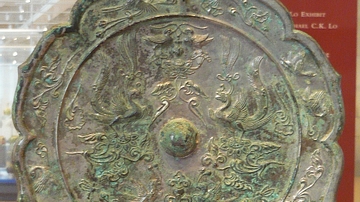
Image
Chinese Bronze Mirror with Phoenix Motif
This Chinese bronze mirror with a phoenix motif dates from the Tang dynasty (618-907 CE). The phoenix was the female counterpart to the male dragon in mythology, and it was also a symbol of Chinese empresses. (Royal Ontario Museum, Toronto)
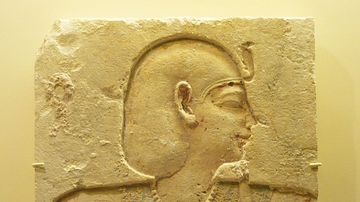
Image
Portrait of Ptolemy I or II of Egypt
This limestone portrait from the Early Ptolemaic Period (323-246 BCE) depicts either Ptolemy I or Ptolemy II of Egypt. Exact provenance is unknown. (Royal Ontario Museum, Toronto)
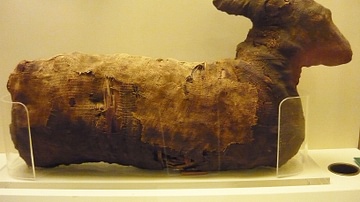
Image
Ancient Egyptian Gazelle Mummy
This gazelle mummy dates from the Late Period (664-332 BCE) of ancient Egyptian history. Its exact provenance is unknown. (Royal Ontario Museum, Toronto)
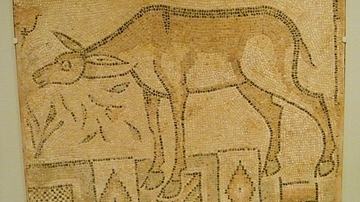
Image
Byzantine Floor Mosaic with Donkey
This floor mosaic with a donkey standing on a mosaic floor is made of limestone tesserae. It was made in the Eastern Mediterranean, c. 500-600 CE. (Royal Ontario Museum, Toronto)
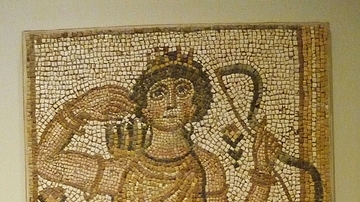
Image
Floor Mosaic with the Goddess Artemis
This floor mosaic with the goddess Artemis is made of limestone tesserae and was made in the Eastern Mediterranean, c. 400-500 CE. (Royal Ontario Museum, Toronto)
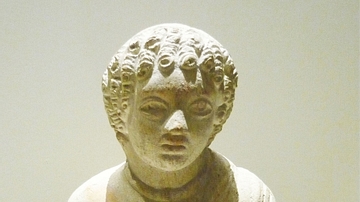
Image
Bust of a Roman Boy on a Pedestal
This type of bust was popular in the Near East during the Roman period. It is made of terracotta and is perhaps from what is prsent-day Jordan. It dates from c. 200-300 CE. (Royal Ontario Museum, Toronto)
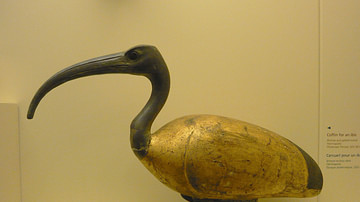
Image
Ibis Coffin from Ancient Egypt
Ancient Egyptian coffin, made of bronze and gilded wood for an ibis, found at Hermopolis, Egypt, Ptolemaic Period (323-30 BCE).
Royal Ontario Museum, Toronto.
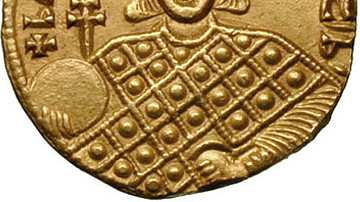
Image
Basil I
A gold solidus coin from the reign of Byzantine emperor Basil I (r. 867-886 CE).
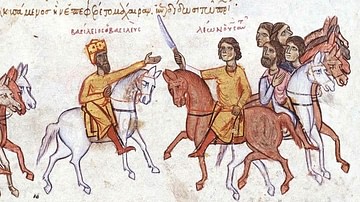
Image
Basil I & Leo VI Confront Each Other
A 13th century CE illustration showing Byzantine emperor Basil I (r. 867-886 CE) confronting Leo VI, his son, murderer and successor. (Madrid Sklitzes, National Library, Madrid)
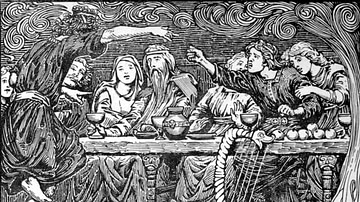
Image
Loki Taunting Bragi
Loki taunting Bragi, a scene from Norse mythology relayed in the Lokasenna story, Illustration by W.G. Collingwood from page 244 of The Elder or Poetic Edda; commonly known as Sæmund's Edda. Edited and translated with introduction and notes...